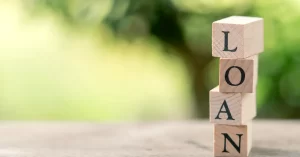

blog
are you looking to take out a loan but you’re not sure what type you should get? you’ve probably heard of secured and unsecured loans, but do you know the difference between them? we’re here to break it down for you so you can make the best decision for your financial situation.
let’s start with the basics: secured and unsecured loans are two different types of loans that have distinct advantages and drawbacks. the main difference between the two is that a secure loan is backed by an asset, while an unsecured loan is not. in this article, we’ll explore the differences between the two and help you decide which one is right for you.
the distinction between secured and unsecured loans is an important one and requires careful consideration when deciding on the type of loan to take out.
a secured loan is backed by an asset, such as a house or car, that is used as collateral. in the event of a default on the loan, the lender can seize the asset and recoup its money. it should be noted, however, that not all assets are eligible to be used as collateral for a loan. when they are, however, it is incredibly easy for people to get loans. no credit check is required for the borrower to get an asset backed loan and the processes are relatively short.
unsecured loans, on the other hand, do not require any form of collateral, leaving the borrower's creditworthiness as the primary factor in determining whether or not the loan is approved. unsecured loans are typically higher risk for the lender, meaning that they may require a higher interest rate or have more restrictive terms and conditions. to repay an unsecured loan, you will need to establish credit and build a history of paying back loans.
the main difference between secured and unsecured loans is the interest rate. secured loans usually have a lower interest rate because the borrower is using collateral to secure the loan. this means that the lender has a lower risk of not getting their money back. unsecured loans don't involve any collateral, so the interest rate is usually higher. that is because this lender has a higher risk of not getting their money back.
so, when should you get a secured loan? there are a few situations where it might make sense to get a secured loan.
should you get an unsecured loan then? if you have good credit, then there’s a good chance that you’ll be able to get an unsecured loan with a lower interest rate than a secured loan. if the possibility of default is low, then it makes sense to go with an unsecured loan. if the possibility of default is high, then a secured loan is better because it helps protect the lender from high-risk situations.
it is important to understand how taking out both secured and unsecured loans can affect your credit score. when taking out a loan, the lender will perform a credit check to determine your creditworthiness. this credit check will be reported to the credit bureaus and will become part of your credit history. if you have taken out multiple loans, the lender may be tempted to wonder whether you are capable of repaying the loan in full. therefore, it is recommended that you only take out as much as you truly need at one time.
the best way to keep your credit score high is to pay off loans with credit limits that are close to 50% of your gross income. that way, you can make large payments and still have enough money left over for living expenses.
in conclusion, there are many differences between secured and unsecured loans. secured loans require collateral, while unsecured loans do not. secured loans have lower interest rates and longer repayment terms, while unsecured loans typically offer shorter repayment terms and higher interest rates. it is important to carefully weigh the pros and cons before deciding to take out either type of loan. knowing the difference between secured and unsecured loans can help you make the right decision for your financial needs.
NOTICE ADVERTISEMENT: paloo is not a bank or a credit provider, but an independent comparison portal. paloo helps consumers save time and money. all products and services are presented without guarantee. paloo is therefore not responsible if information about loans is incorrect. in the comparison, loans are offered by lenders for which we may receive a commission, so we can provide content on our website free of charge. thank you for your support.
paloo.com: United Kingdom • Germany • Spain • France • Sweden • Netherlands
paloo b.v. • Johan de Wittlaan 7 • 2517 JR The Hague • contact@paloo.com • 070 701 3431 • KvK 81628110 • VAT NL862162002B01
blog.uk • cookies • disclaimer • privacy policy • terms of service • use policy
© 2023 paloo • made with ❤